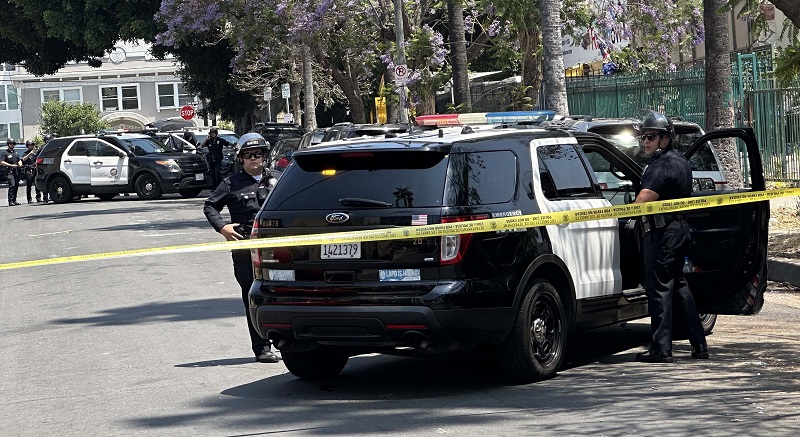
By Yejin Kim
The author is a Metro/City news reporter of The Korea Daily.
The Fourth of July holiday was once again marred by mass shootings, as the sound of fireworks was overshadowed by gunfire claiming many lives. On July 4th alone, there were 16 mass shootings across the country, resulting in 16 fatalities and nearly 100 injuries. In California, two shootings in the Hayward area left five people injured.
The day after the holiday, the news was filled with chilling headlines, using words like “bloody” and “horrific.” What should have been a joyous and memorable Fourth of July holiday turned into a nightmare for some.
As of July 11, there have been over 2,000 incidents of gunfire across the country so far this year. The number of mass shootings, defined as incidents with four or more victims, has reached 647, more than double the 273 recorded in 2014. Additionally, gun ownership is on the rise, with a total of 23 million guns sold nationwide in 2021, marking a 65% increase from the previous year. Safety concerns remain the top reason cited by individuals for purchasing firearms, according to the Federal Bureau of Investigation (FBI).
How did it all go wrong? The right to bear arms in the United States dates back over 200 years. The Second Amendment, enacted in 1790, guarantees individuals the freedom to keep and bear arms, with the rationale that “A well-regulated Militia, being necessary to the security of a free State, the right of the people to keep and bear Arms, shall not be infringed.”
However, as society has evolved, the need for gun control has become evident. Despite ongoing debates, strong gun control measures have not been effectively implemented. One primary reason for the lack of robust gun control laws is the concern over personal safety. The rise in urbanization has led to an increase in crime, causing many individuals to believe that having a gun is necessary for self-protection.
Another significant factor is the substantial political influence wielded by the National Rifle Association (NRA). The NRA reportedly spends approximately $50 million annually on political contributions. There are also concerns about the potential negative impact on the economy as a whole if stricter gun control measures lead to a decline in gun sales, as the U.S. gun industry is currently substantial.
The issue of gun control is closely tied to individuals’ political affiliations. An October 2021 Gallup poll revealed that 91% of Democrats strongly support gun control, while only 24% of Republicans agree.
In recent years, calls for gun control have grown louder due to the increase in illegal gun sales, including unregistered firearms known as “ghost guns.” Los Angeles Police Chief Michael Moore has attributed part of the spike in shootings to the heightened production of these ghost guns using 3D printers.
These circumstances prompt us to reevaluate whether the freedom to bear arms, which poses a threat to public safety and violates the right to life, is a freedom that should be revered. Before the government enforces regulations on firearms, it must consider whether gun ownership is morally justifiable and make the appropriate decision by understanding the ethical perspective of sacrificing the few for the sake of the many, or vice versa. In the name of individual freedom, we must question the righteousness of possessing firearms at the expense of others.
While the Second Amendment includes the phrase “a well-regulated Militia,” most shooters are far from being “well-regulated.” Constitutional law professor Peter Burney argues that gun ownership is a necessary right to defend one’s life, property, and the lives and property of one’s family. However, when a defensive weapon is wielded as a tool to take innocent lives, the freedom to bear arms must be regulated.





